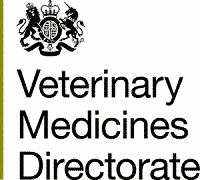CONTACT VMD: What should you do if you or your animal has an adverse reaction to any medicine?
You can report it to the Veterinary Medicines Directorate. The same applies for microchip implants or for a medicine that fails to work.
There are three different forms used to report unexpected or suspected medical reactions. As a rule, it depends most on whether:
- An animal reacts to medical treatment or to a microchip implant.
- A human suffers a reaction after coming into contact with veterinary medicine.
The VMD will use all the information given to them. It helps them track potential problems with animal medicines and microchips. In turn, this helps to keep humans, and the animals we keep on farms, safe.
Animals in farming businesses usually means livestock, horses, and dogs. Even so, cats and birds can also suffer adverse reactions to medicines. Some of the birds of prey are a common farm bird and used for hunting foxes.
Animal Reaction to Animal Medicine
Make a report if medicine given to your animal does not work or has made it unwell. It does not matter whether you or a vet gives the medicine. But, if you apply medicine to your animal, be sure to follow all the related safety requirements.
The information and details needed for filling in the ‘Adverse Report Animal Form’ include:
- The name of the medicine used. Include a batch number and Marketing Authorisation (MA) number if known.
- The animal species, breed, and age. Include information from the horse passport if you report a sick equine.
- When the medicine was first given, how (injected, oral, or applied), and who administered it.
- Any obvious signs and symptoms or lack of improvement.
Note: You can make the report online through Veterinary Medicines Directorate website (see below).
In some cases you may be unable to make an online report. the ‘Adverse event reporting form‘ for animals ‘#212290-A5’. Complete the form and then post it to the Freepost address written on the form.
Animal Reaction to Microchip Implant
Make a report of all incidents involving animal microchips. This includes situations if:
 The chip implant causes a reaction to the animal. This may be an infection, excessive bruising, or prolonged bleeding.
The chip implant causes a reaction to the animal. This may be an infection, excessive bruising, or prolonged bleeding.- The chip moves from its injected area or has fallen out.
- A chip reader shows no information during a scan of the animal.
This type of veterinary adverse reaction reporting needs the chip number. Whoever injects the chip will give you the number following implantation.
These types of infections are unusual. Serious microchip complications occur around one in a million in the United Kingdom. But, all infections need reporting so the database gets kept up-to-date.
Note: Since the 6th of April 2016, all ‘individually’ licensed dogs need microchipping in the United Kingdom.
You can make a report online through the VMD website. Use the Microchip Adverse Event Reporting form. If you are unable to report online you can contact VMD by phone or by postal methods.
Human Reaction to Animal Medicine
If you suspect that yourself, or anyone else, is having (or had) a reaction to any animal medicine – you should report it. This includes any kind of skin irritation or any allergic reaction.
The information and details needed for filling in the ‘Adverse Human Report Form‘ include:
- The name of the medicine used. Include a batch number and Marketing Authorisation (MA) number if known.
- Those affected – giving details of how and when they came into contact with the medicine.
- Any signs and symptoms showing.
You can make the report online through the Veterinary Medicines Directorate website. You can also download the Adverse Event Reporting form for humans ‘form #212635-A5’. Complete the form and return it to the Freepost address written on the form.
Note: You can check if a veterinary medicine is licensed for use (e.g. current and authorised to treat pets and other animals) on the GOV.UK website.
Contacting the Veterinary Medicines Directorate
You can contact the Veterinary Medicines Directorate Pharmacovigilance Team by email, by phone, or by mail.
Veterinary Medicines Directorate
VMD Pharmacovigilance Team
FREEPOST KT 4503, Woodham Lane,
New Haw, Addlestone, Surrey, KT15 3BR
Mail: [email protected]
Telephone: 01932 336911

